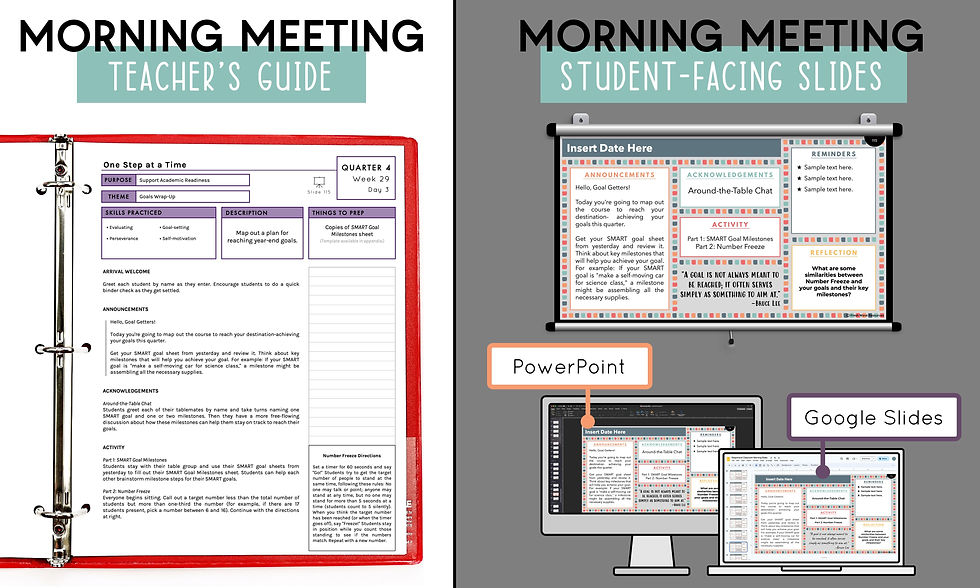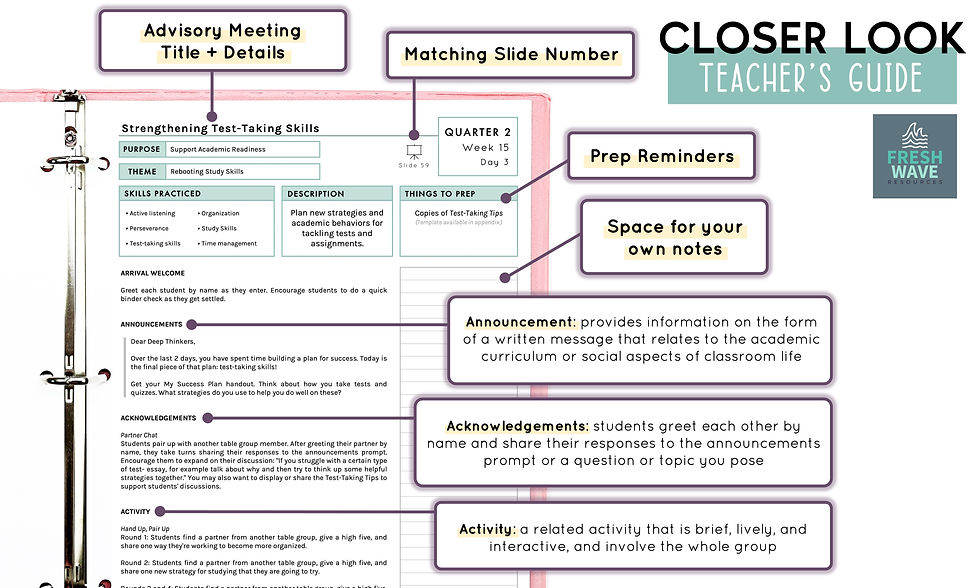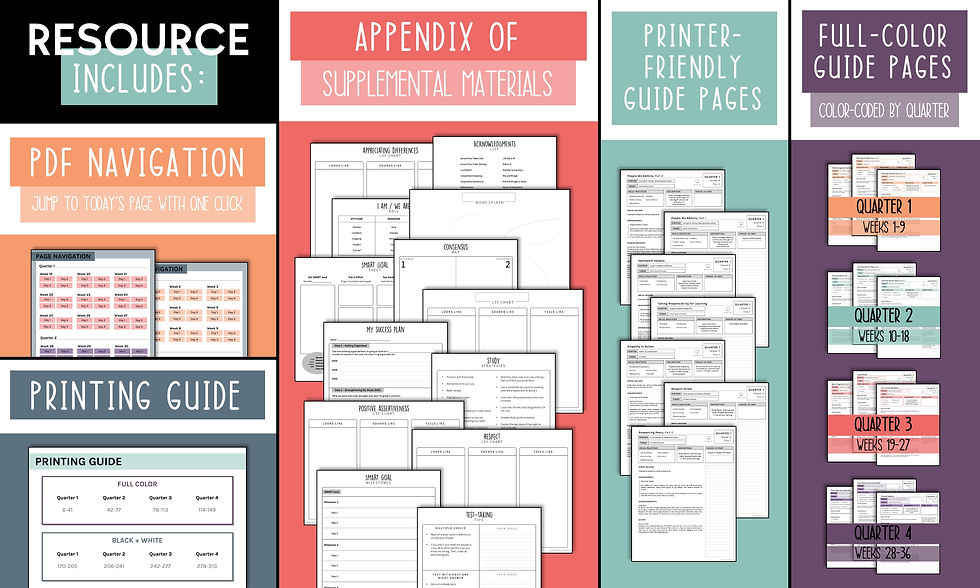Boosting Middle School Engagement with Responsive Classroom Morning Meeting Slides
- Julie Blackmore
- Oct 2, 2023
- 3 min read
When my school first introduced us to the idea of the Responsive Advisory Meeting morning routine for our middle school students, I was a complete beginner with no idea what that meant.
I had always done some sort of morning meeting routine, but having a Responsive Classroom approach was totally new to me. I searched for something that I could plug-and-play just to get me started, because I was feeling overwhelmed. Unfortunately, I couldn't find anything to fit my needs.
This resource provides you with a clean, simple, and modern teacher's guide to what each day of the Responsive Advisory Meeting outline should entail, as well as pre-made slides that are ready to present to your students. The slides are completely editable, so you can customize everything to your needs.
As educators, we are constantly striving to create a nurturing and supportive environment for our students. We understand that they face not only academic challenges but also social, emotional, and personal ones. Responsive Advisory Meetings address these problems and help teachers to create and nurture our middle school aged students.
This resource can be used by an individual classroom even if their school has not adopted the Responsive Classroom approach. In fact, implementing this daily routine could be incredibly impressive to your administration and inspiring to other teachers!
What Is Included With the Responsive Classroom Slides + Guide Kit?
Responsive Advisory Meeting Guide (313-page PDF)
144 daily meeting plans, split into 4 quarters
Appendix of resources used throughout the year
Full color and printer-friendly versions included
144 editable PowerPoint Morning Slides
144 editable Google Slides Morning Slides
Responsive Advisory Meeting Guide (PDF)
- 313 pages
- Page navigation allows you to jump right to the day you want
- Printing guide helps you to print off just what you need
- Full color and printer-friendly version of the daily plans
- Morning meeting plans go in the order you will use them through the year
- Templates of all resources described in the meeting plans provided in an appendix section
Daily Advisory Meeting Plans:
- Describes each day's greeting, announcement, acknowledgement, and activity
- Provides space for your own notes
- 'Things to Prep' section alerts you to what needs to be prepped ahead of time
Morning Slides Presentations (PowerPoint and Google Slides)
- All text is editable
- Announcement- provides information in the form of a written message that relates to the academic curriculum or social aspects of classroom life.
- Acknowledgements- students greet each other by name and share their responses to the announcements prompt or a question or topic you pose.
- Activity- a related activity that is brief, lively, and interactive, and involve the whole group.
- Reflection- A thought-provoking wrap-up question.
- Reminders- A section in which you can type in your own school or classroom announcements for that day.
This resource is highly effective for Grade 5-12, however, it is ideal for grades 5, 6, 7, and 8.
What are Responsive Advisory Meetings?
Responsive Advisory Meetings are structured gatherings where students meet regularly with a dedicated advisor in a small group setting. The purpose is to provide a safe and inclusive space where students can express themselves, share their concerns, seek advice, and develop essential life skills. The following are the main tenets of the Responsive Advisory meetings.
Holistic Development
By focusing on the whole student, we can help them develop social and emotional skills that are crucial for their personal growth and well-being. These skills, such as empathy, communication, and resilience, go beyond the classroom and positively impact their lives outside of school.
Building Strong Relationships
Responsive Advisory Meetings foster stronger bonds between students and advisors. When students feel connected and understood, they are more likely to engage in their learning and seek support when needed.
Individualized Support
Each student faces unique challenges, and the small group setting of Advisory Meetings allows us to offer personalized guidance and support. Advisors can identify struggling students early on and provide timely interventions.
Creating a Positive School Climate
By promoting open communication and empathy within the school community, we can cultivate a positive and inclusive school climate. This, in turn, leads to increased motivation, reduced disciplinary issues, and improved overall school culture.
Student Voice and Agency
Responsive Advisory Meetings empower students to voice their opinions and concerns. By involving them in decision-making processes that affect their school experience, we show them that their opinions matter, leading to increased engagement and ownership of their learning journey.
Academic Performance Improvement
Research has shown that when students feel emotionally supported and connected to their school community, their academic performance tends to improve. Responsive Advisory Meetings contribute to this positive correlation.
Mental Health and Well-being
Adolescence can be a challenging time, and many students face mental health issues. By having regular check-ins through Advisory Meetings, we can identify signs of distress early on and provide appropriate resources or referrals.










Comments